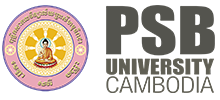Homeschooling Suffocated School Kids In Singapore
Singapore's educational system is one of the most updated systems in the world. The system always thinks for the benefit of students and the ministry of education in Singapore comes up with policies related to education to keep students at pace with the fast-moving world. During the covid-19 pandemic in Singapore, education management was being strictly looked after by the government.
Online educational administration and management courses in Singapore have done thorough research on how schools in Singapore have performed or coordinated during the covid days. Generally, in Singapore students attend school for 200 days approximately a year but owing to the pandemic in the year 2020, the number of days was only 150. Singapore adopted home-based learning approaches.

ARE SCHOOLS OPEN IN SINGAPORE- was one of the most searched questions on Google. During the first phase of covid apart from the front row workers others were not fully vaccinated. To prevent the contamination of this infectious disease, the Singapore government started sanitizing schools. The school system got entirely home-based which includes both primary and secondary schooling during the pandemic.
If you’re planning to teach in Singapore, check this video out now!
During the month of February, the lockdown was being announced and there was no news to return to school. This had a different impact on students because before the onset of the pandemic students had a learning environment where they used to interact with their peers on a daily or regular basis. The E-learning method or home-schooling actually created a congested and suffocating atmosphere for kids during the initial phase.
For the affluent section, it was not that much of a hard phase because they had the privilege to avail of several things like a separate room, the latest gadgets, etc. However, for the socio-economically lower background, adjusting to the home-schooling and online learning method was difficult. Students who live with their grandparents, younger children, or unemployed household members may have less space and time to devote to their studies at home, compared to students without such constraints.
This pandemic has not only affected the kids but also their parents. Along with schools, the government also announced work from home for corporate organizations. Spending time behind their scheduled job and then again behind their kids became a hectic issue. This gave rise to various problems like anxiety, depression, etc. Unfortunately, there have been multiple cases where women were being forced to leave their jobs and take care of the household chores, thereby supporting and flexing gender inequality to the highest extent possible.
However, the Singapore government understood the intensity of the situation and decided to provide electronic assistance to students who could not bear the purchase amount. Schools reopened during June and once the effect of 1st wave of covid got diminished, the government got into the face-to-face classroom sessions once again. It was a blended-learning model where the number of homeschooling sessions got reduced to some extent.
Schools in Singapore arranged large and spacious school environments are essential for safe distancing. The availability of running water, hand sanitizer, and clean toilets was meant essential for handwashing and general hygiene. At the same time, highly skilled personnel conveyed safe management measures to children and made sure that those were being followed. Such measures also require the development of class activities that are easier to conduct safely.
While there is limited research in Singapore on the impact of this short-term school closure, studies conducted globally show mixed results in terms of the impact of school closure on the pandemic time and negative results on the health, well-being, and learning of students. Needless to say, these outcomes are mediated by contextual factors, such as the availability of the internet, digital literacy, other non-school-based nutrition programs for children, and housing conditions.
That is how schools have operated during the pandemic in Singapore. The Singapore educational system has taken lots of steps to provide as much assistance to students as possible. Online educational administration and management courses in Singapore have conducted multiple types of research to analyze how the government dealt with students and schools during the outspread of covid-19 and the result is being discussed in this entire blog.















